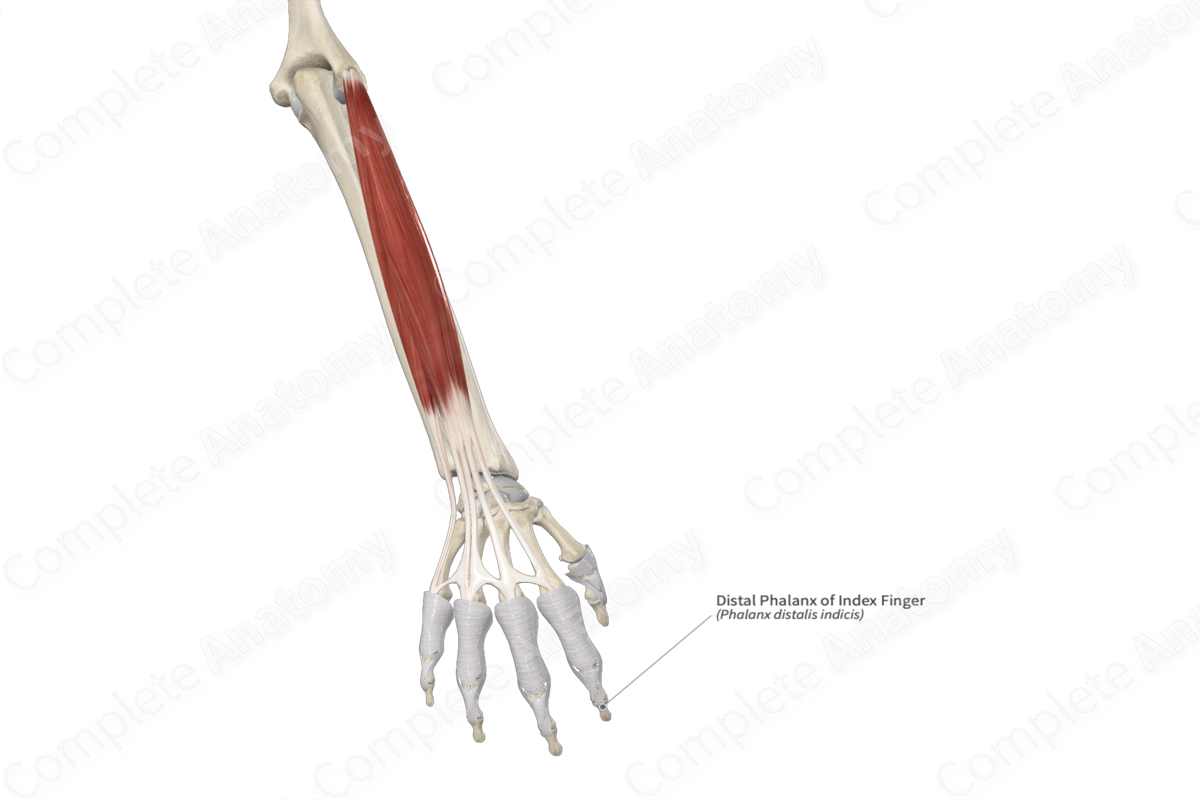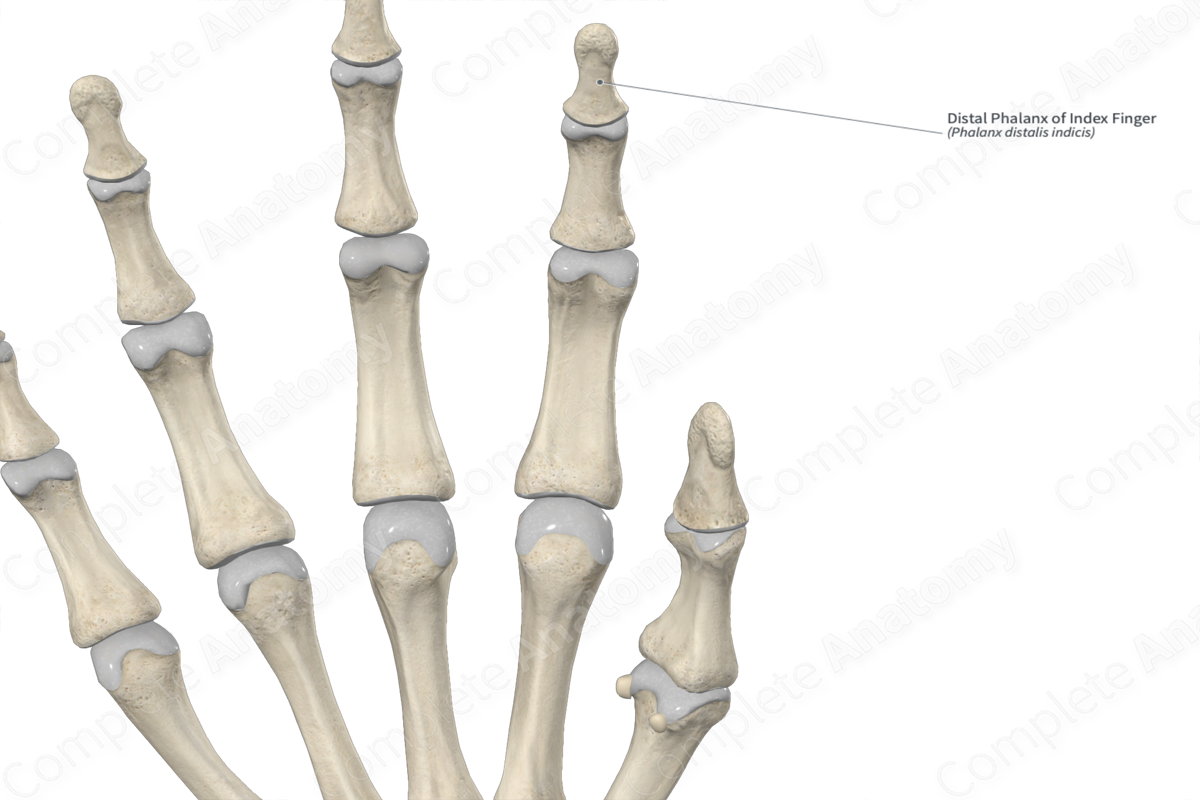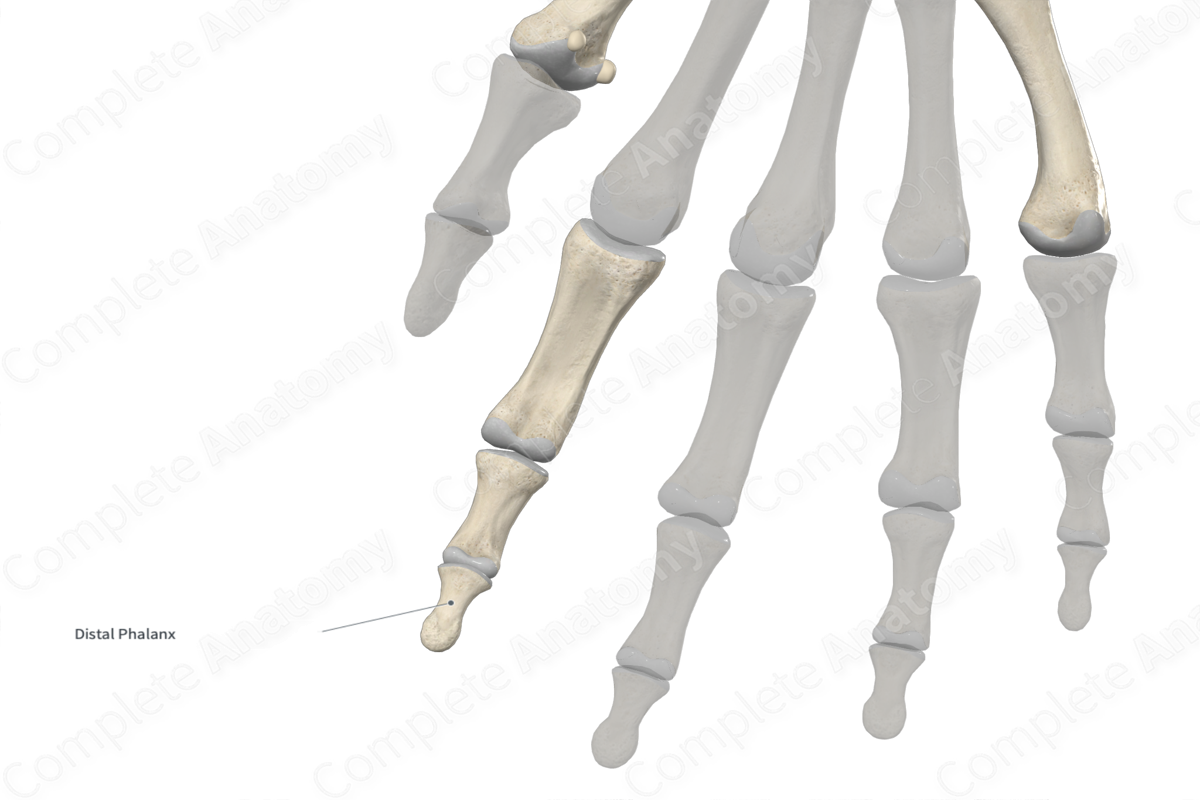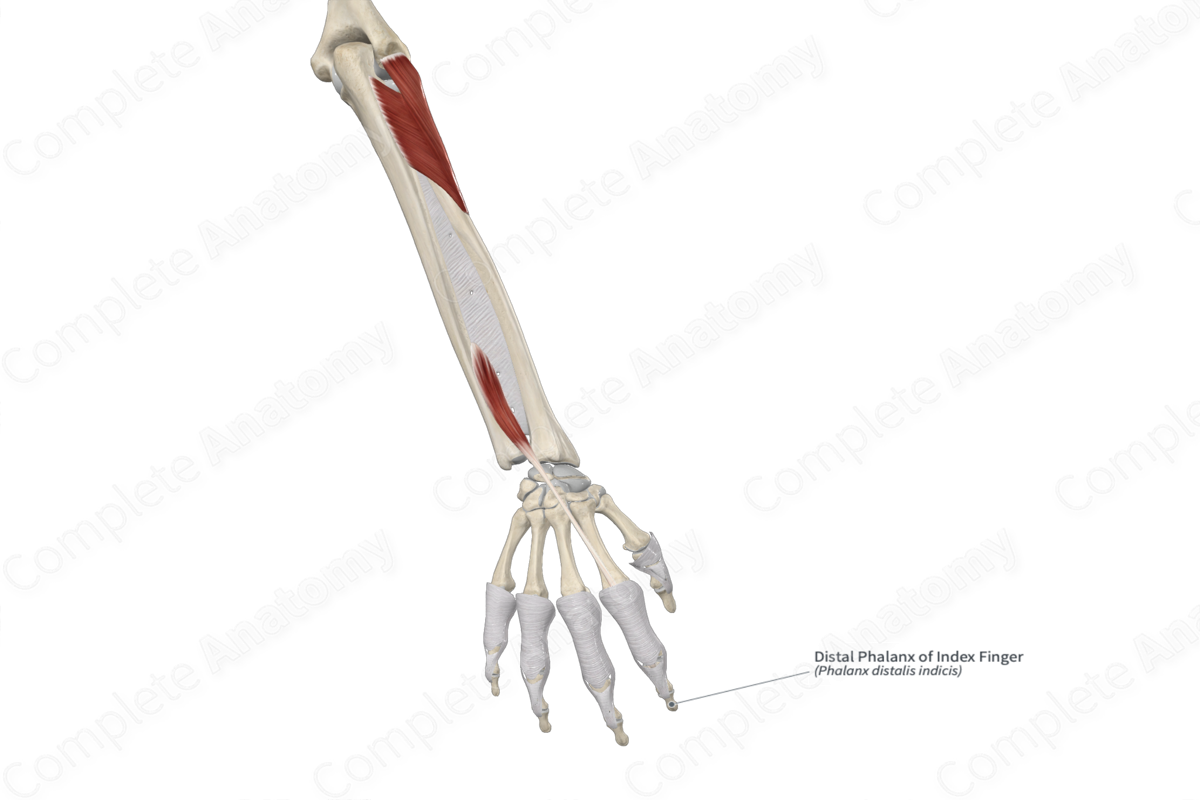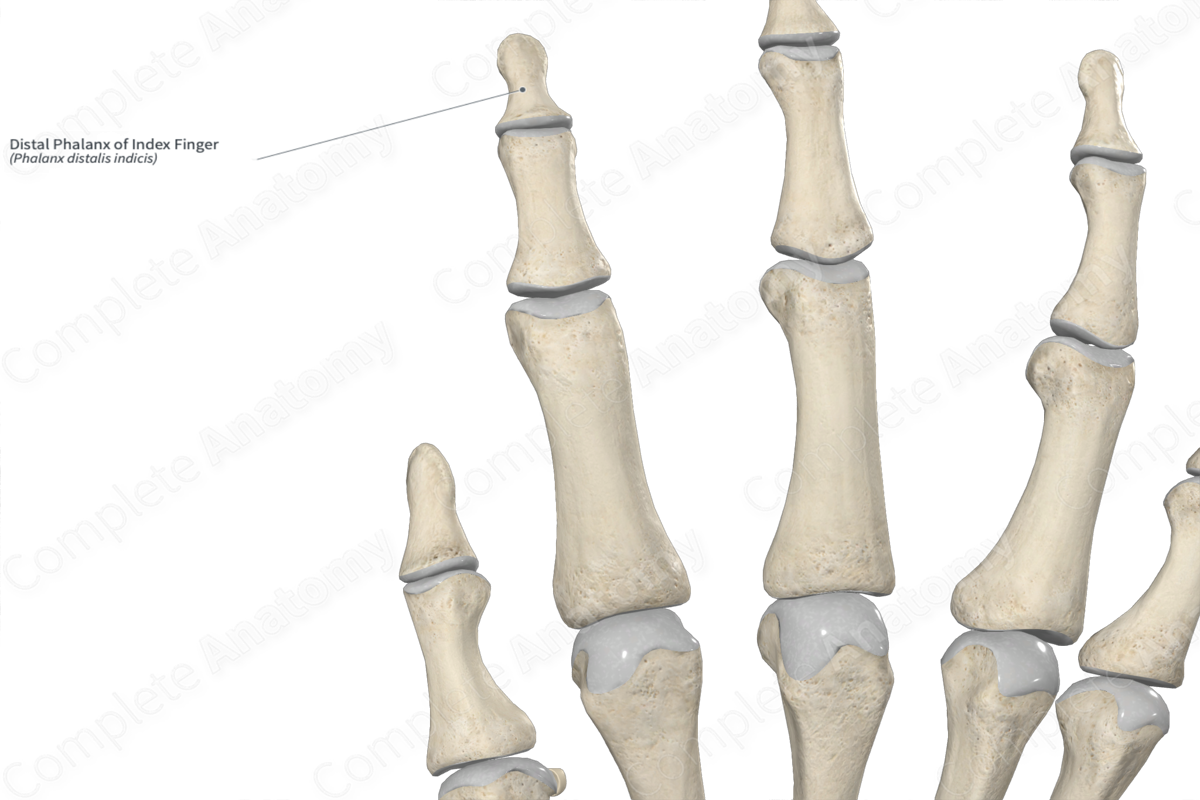
Quick Facts
Location: Hand.
Bone Type: Long bone.
Key Features: Head, body, base, tuberosity, and articular facet.
Articulates With: Middle phalanx of index finger.
Arterial Supply: Proper palmar digital arteries.
Related parts of the anatomy
Key Features & Anatomical Relations
The distal phalanx of the index finger is one of the fourteen phalangeal bones of the hand. It’s classified as a long bone and includes the following bony features:
- parts: head, body, and base;
- landmarks: tuberosity and articular facet.
More information regarding these bony features can be found in the Parts and Landmarks tabs for this bone.
The distal phalanx is located distal to the middle phalanx and articulates with it at the distal interphalangeal joint.
Ossification
Ossification of the distal phalanx of index finger occurs at two ossification centers, these are found in the:
- body, which appears in utero during the third month;
- base, which appears during the second to fourth years.
These ossification centers fuse with each other during the fifteenth to eighteenth years (Standring, 2016).
Surface Anatomy
With regard to surface anatomy, the head, body, and base of the distal phalanx of index finger can be easily palpated.
List of Clinical Correlates
- Fracture
- Brachyphalangia
- Symphalangia
- Clinodactyly
References
Standring, S. (2016) Gray's Anatomy: The Anatomical Basis of Clinical Practice. Gray's Anatomy Series 41st edn.: Elsevier Limited.
Learn more about this topic from other Elsevier products

